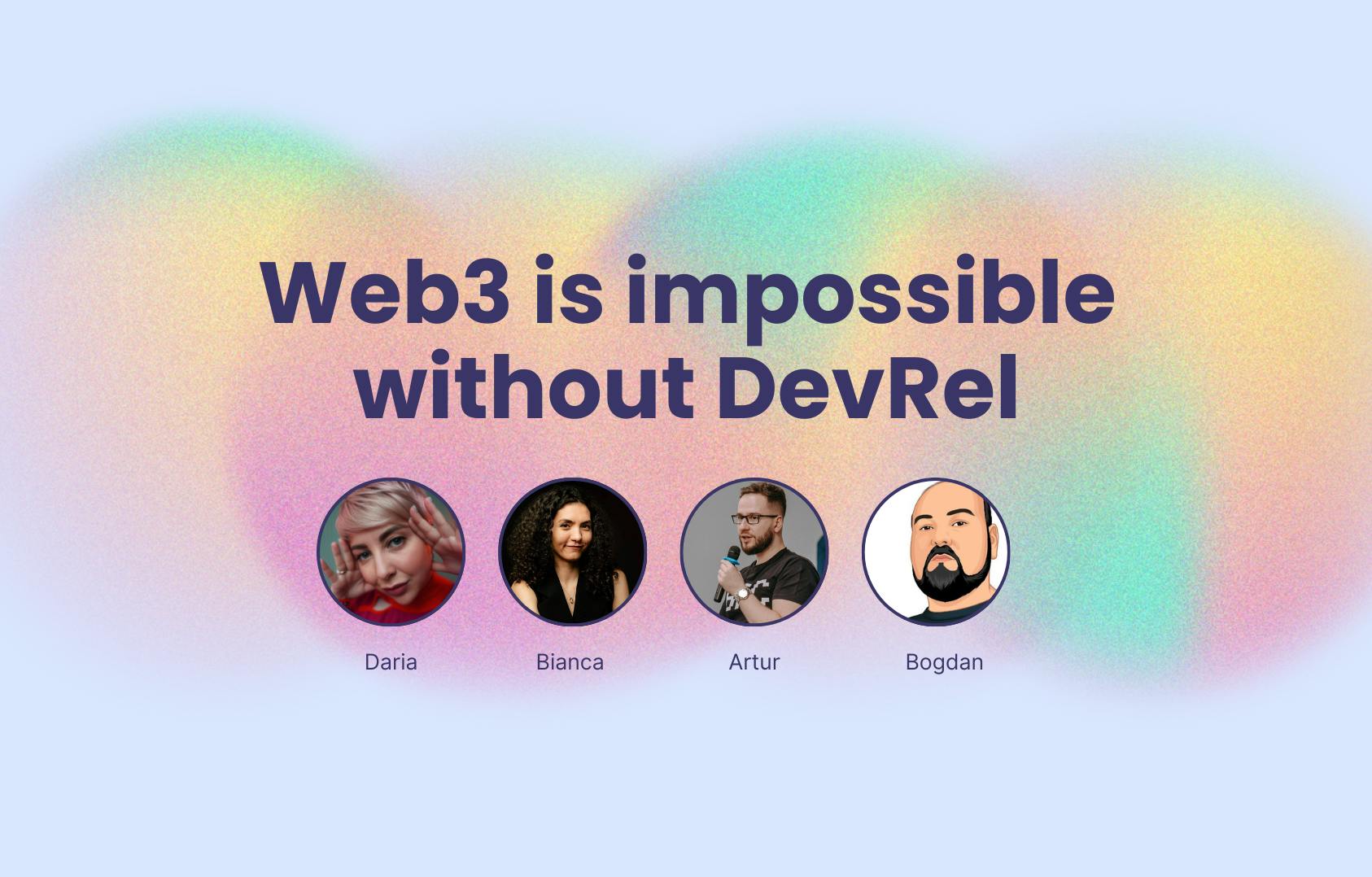643 reads
Developer Relations in Web3: How Learning DevRel Helps Build a Career
by
December 23rd, 2024
Audio Presented by

Strategic Brand Marketer & Growth Expert. Team Manager. Public Speaker. Educational content about Web3. UA🇺🇦
Story's Credibility







About Author
Strategic Brand Marketer & Growth Expert. Team Manager. Public Speaker. Educational content about Web3. UA🇺🇦
